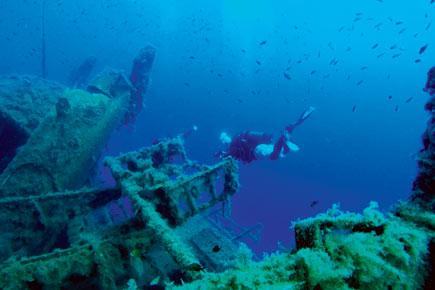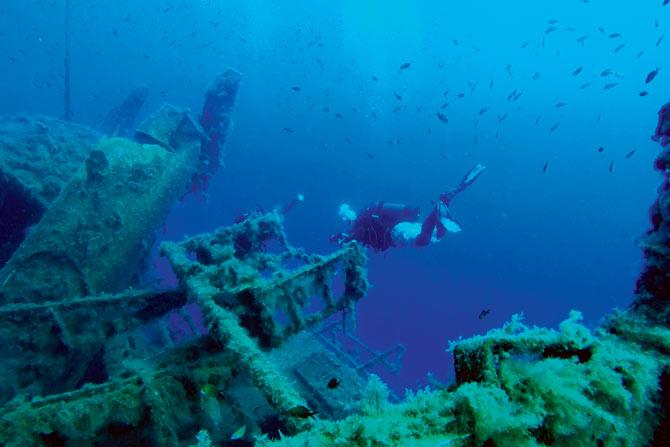A 35-year-old shipwreck is the centre of attraction for diving enthusiasts who flock to the turquoise waters of Cyprus each year to witness its sunken glory

Enthusiastic divers flock to the Zenobiau00c3u00a2u00c2u0080u00c2u0099s remains to take photographs of the shipwreck. pic/Afp
Cyprus: An Iron and steel colossus that sank on a summer’s night 35 years ago off Cyprus is now considered one of the world’s best shipwreck dives. Thousands dive down each year to see the Zenobia also dubbed as “Titanic of the Mediterranean”, which is slumped on its port side at a depth of 40 metres (130 feet) off the island.
ADVERTISEMENT

Enthusiastic divers flock to the Zenobia’s remains to take photographs of the shipwreck. pic/AFP
The roll-on, roll-off Swedish ferry, named after a third-century queen of ancient Palmyra, is the top wreck dive in Europe, competing with sites in the Red Sea, Asia and off Australia. “It’s so big you can dive a few days and not get bored,” said Mat Howell, who works for a British-based scuba diving holiday firm and was in Cyprus for the annual ‘Zenobia Week’ at the end of June to promote the site. Unlike many other wrecks, the Zenobia is easily accessible, a mere 10-minute boat ride from the coastal resort of Larnaca.
Like the Titanic, which sank in the Atlantic in 1912, the Zenobia came to grief on its maiden journey on its way to the Syrian port of Tartus. On June 2, 1980, shortly after midnight, the captain of the listing vessel sent out an SOS. Trawlers went to the rescue from Cyprus but to no avail and the Zenobia went down five days later, without loss of life but with around 100 articulated lorries loaded with cigarettes, cables and one million eggs still on board. Theories for the cause of the disaster range from navigation errors, ballast problems and an insurance scam to sabotage because of an alleged secret consignment of arms.
Over three decades later, divers zig-zag between the sunken trucks, rusty but still intact, while the more experienced enter the dark caverns of the sleeping hulk or the upper car deck and accommodation area, some even making it to the engine room. “You can still see the carpeting of the upper deck and even the tables in the restaurant area,” said diving instructor Hatte Clasen of the wreck, which extends over 172 metres of seabed.
The site alone attracts 45,000 visitors each year, according to local authorities. They have been campaigning for the government to impose a fishing ban around the Zenobia to preserve what has turned into the biggest coral reef off Cyprus.
 Subscribe today by clicking the link and stay updated with the latest news!" Click here!
Subscribe today by clicking the link and stay updated with the latest news!" Click here!






